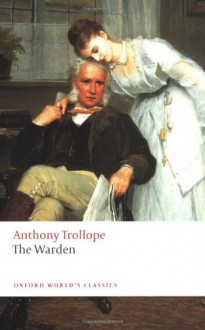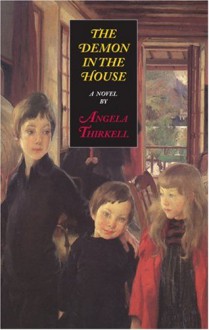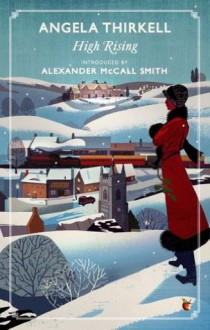
With a small town Victorian setting, the fictional Barsetshire, and an appealing somewhat Austen-like cast of characters, Trollope's novel The Warden illustrates just how complicated reforming a centuries old church policy can be, even when everyone involved has valid concerns and mostly the best of intentions. When John Hiram died in long ago 1434 his will left money and property for the support of twelve impoverished older men retired from the trade of wool-carding, the men being replaced by others as they passed on to the better world, all of which was to be overseen by a warden compensated for his work. The charity has prospered in the 400 or so years since it was established and has been able to continue its mission unabated.
Obviously by Victorian times though things had changed--there were no longer wool carders in Barsetshire for instance--so terms have had to be adjusted, but maybe they have strayed too far from the original intent? Currently the twelve elderly recipients are housed in comfortable lodgings, receiving all they need to live and allocated a small amount of money for their own use. Rev. Harding, the just and compassionate warden, also gives the twelve an extra stipend from his own pocket, and the men enjoy both his company and the beautiful music he plays in the evenings.
But then John Bold, a reform minded young man incidentally in love with the warden’s daughter, takes it into his head that the warden’s yearly salary is too much and that more of the charity's money should be going directly to the twelve men. Which sets up an achingly poignant conundrum. Should such a caring warden’s income be reduced? Everyone has a strong opinion about what is right, including the men themselves, and when the matter is taken up by the press the poor warden is vilified, horrifying him.
There is almost an O. Henry quality to this story, with some surprise twists at the end and most characters having to live with the unexpected consequences of actions they had thought so prudent at the time. Trollope uses The Warden to make lots of observations about human nature and the workings of Victorian society, which are wittily written and for the most part interesting, but they do slow the story down. I had heard The Warden is the weakest of Trollope’s Barsetshire novels, which makes me very eager to read the rest because I loved this one.


 Log in with Facebook
Log in with Facebook 









